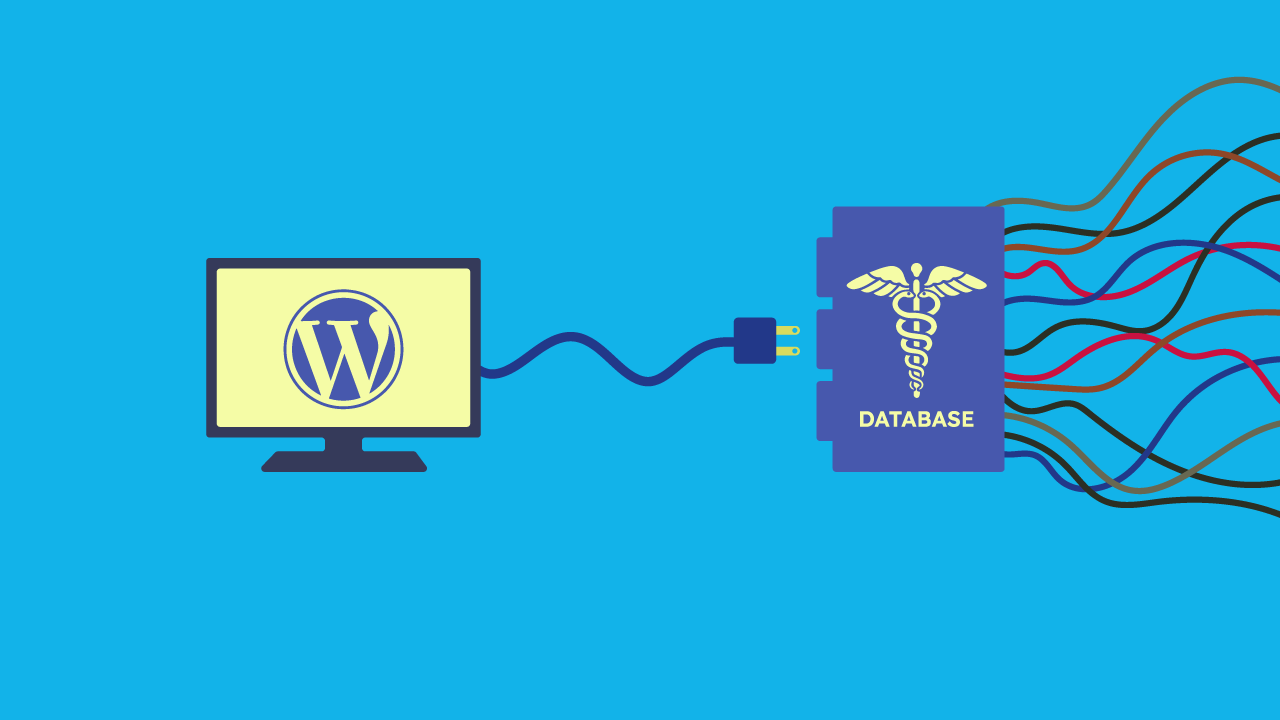In today’s digital age, a majority of healthcare institutions have established their presence online, with websites providing vital information and services to their patients. Yet, healthcare organizations are bound by the Health Insurance Portability and Accountability Act (HIPAA), a federal law designed to ensure the privacy and security of patients’ health information. Consequently, any healthcare provider, vendor, or covered entity that deals with protected health information (PHI) must ensure that the systems and platforms they employ, including web hosting services and content management systems (CMS), are compliant with HIPAA regulations.
WordPress, as one of the most convenient content management systems in the world with over 455 million websites using it, is a natural choice for many healthcare entities. Given its widespread use, many healthcare providers face the challenge of making their WordPress website HIPAA compliant. While not impossible, this process is complex because even the smallest oversight can jeopardize the website’s compliance status and the safety of the patient data it handles.
What Makes a WordPress Website HIPAA Compliant?
When you think of HIPAA, it’s easy to imagine it in the context of traditional healthcare practices, where physical paperwork and records are the norms. However, the digitization of healthcare has introduced new challenges that include safeguarding electronic protected health information (ePHI) on websites.
Even though HIPAA doesn’t specifically detail compliance requirements for websites, its broad framework of ensuring the safety of ePHI remains consistent across platforms. In other words, whether your website was built from scratch or created using an off-the-shelf platform such as WordPress, you must align with the HIPAA Security Rule and use a combination of administrative, physical, and technical safeguards:
- HIPAA-compliant hosting provider to host the website.
- Physical security controls to prevent unauthorized access to PHI.
- Integrity controls to ensure ePHI can’t be destroyed or changed.
- Transmission security controls for sending PHI to or using an external entity. Any data that passes through a third-party server must be encrypted.
- Access controls to limit who, externally and within the organization, can access PHI. The HIPAA Privacy Rule requires that users access the minimum necessary PHI to perform their job duties.
- Employee training so that employees understand exactly what they are able and not able to share on a website to maintain HIPAA compliance.
- Audit controls to track activity on a website and monitor who is viewing what and when.
- A business associate agreement (BAA) must be signed before any PHI can be stored on a website.
After aligning with these points of the HIPAA Security Rule, there’s one more step — assessing risks. To make your WordPress website HIPAA compliant, you must subject the website, along with any plugins and systems linked to it, to a risk analysis. This can help you pinpoint potential vulnerabilities and address them to reduce any risks to a reasonable and acceptable level.
Is WordPress CMS HIPAA Compliant?
WordPress is designed to be a general-purpose CMS, not specifically for healthcare or other regulated industries. This means that WordPress does not automatically encrypt user data, which is a primary HIPAA requirement for any system handling ePHI. Also, by default, WordPress doesn’t offer a built-in activity logging system, crucial for tracking access and changes to ePHI. Finally, WordPress core, themes, and plugins can have vulnerabilities that can pose risks to data integrity and security, if not timely managed.
doesn’t offer a built-in activity logging system, crucial for tracking access and changes to ePHI. Finally, WordPress core, themes, and plugins can have vulnerabilities that can pose risks to data integrity and security, if not timely managed.
However, with the right customization, it’s possible to tailor WordPress to be in line with HIPAA regulations. Here are some of the steps you can take to optimize WordPress CMS for HIPAA compliance:
Choose the Right Hosting Service
To make your WordPress website HIPAA compliant, you need to be careful when choosing a hosting service. Simply hosting the site with a HIPAA-compliant hosting provider doesn’t guarantee compliance. Make sure that all access, audit, and integrity controls are in place with safeguards implemented to secure data at rest and in transit.
Make Sure ePHI is Stored Outside of WordPress
WordPress is designed for content management, not for securely storing sensitive data like ePHI. It’s best to store ePHI outside of WordPress, using secure, HIPAA-compliant storage solutions. If your WordPress site needs to display or interact with ePHI, integrate it with external databases or systems that are specifically designed for secure, compliant data storage. This way, even if your WordPress site is compromised, the ePHI will remain protected in a separate environment.
Regularly Update WordPress
As an open-source platform, WordPress has a large community of developers continuously working on its core, themes, and plugins. This vast ecosystem also means there are countless opportunities for vulnerabilities to appear. Plugins, in particular, can pose a significant risk because quality and security practices can vary. At the same time, old or abandoned plugins may contain unpatched vulnerabilities while updated plugins can sometimes conflict with other elements, potentially introducing new risks.
Given these challenges, it’s crucial to maintain up-to-date versions of WordPress, themes, and all plugins because staying updated minimizes the chances of attacks exploiting outdated components. Prioritize plugins from trusted sources and those with a consistent history of regular, secure updates. Limit your plugin usage to the essentials, remove any inactive ones, and keep your WordPress website HIPAA compliant, always back it up before initiating any updates.
Encrypt Data
For data in transit, use SSL/TLS protocols to ensure that any communication between your server and the user’s browser remains confidential. For data at rest, such as data stored in databases, use strong encryption methods to keep the data unreadable in case it falls into the wrong hands.
Strong User Authentication
Strong authentication practices are the front line in keeping your WordPress website HIPAA compliant. In addition to setting strong passwords and unique admin account names to reduce the potential for brute force attacks, use rate limiting to further improve security and implement two-factor authentication (2FA) for all administrator accounts. 2FA, such as a code sent to a mobile device or an authentication app, significantly reduces the risk of unauthorized access, even if passwords are compromised.
Backup Data Regularly
Data is the backbone of any healthcare organization’s website, and its loss can jeopardize both your operations and patient trust. Schedule regular backups to be prepared and make sure that these backups are encrypted to maintain the integrity and confidentiality of the data. Store them in a secure location, either off-site or with a cloud provider aligned with HIPAA standards. It’s also wise to periodically test your backups to see if they can be restored quickly and efficiently when needed.
Conduct Regular Security Audits
Security isn’t a one-time action but a continuous process. Periodically assess your WordPress website for potential vulnerabilities. Use tools or hire professionals to perform these audits, and stay one step ahead of potential threats. This way, you can identify and address potential issues before they escalate, making your WordPress website HIPAA compliant and keeping your patient data protected.
HIPAA Compliant WordPress Plugins
Keeping your WordPress website HIPAA compliant often involves using specific plugins designed for data protection and security. While WordPress itself doesn’t inherently meet all HIPAA standards, the right plugins can bridge this gap. Some of the WordPress HIPAA plugins you may consider include HIPAA Forms to create safe, simple contact forms, HIPAAtizer to customize or convert contact forms for safety purposes, Google Authenticator to protect and implement strict login credentials, or Two Factor Authentication to ensure only trusted people can access data.
However, as we’ve already mentioned, you must be careful because overloading your WordPress website with multiple plugins can slow it down, leading to poor user experience and increased bounce rates. Also, make sure to choose plugins that are highly recommended and have a reputation for security and update them as soon as new versions or updates are released.
How to Ensure Your WordPress Hosting Provider is HIPAA Compliant?
Starting your HIPAA compliance journey on the right foot requires an understanding of the Business Associate Agreement (BAA). This is a legally binding contract between a covered entity (CE) and a business associate (BA) that outlines the BA’s responsibilities for protecting the confidentiality, integrity, and availability of PHI.
The willingness of the hosting provider to sign this critical document should be at the forefront of your selection criteria. This agreement signals their commitment to maintaining the stringent privacy and security standards set by HIPAA even before any PHI is stored.
Also, it’s important that the provider’s data centers come equipped with rigorous access controls and continuous surveillance as well as to validate that your patient data is consistently encrypted, both during transmission and when stored. Lastly, a compliant provider should not only perform routine security audits but also have a well-defined incident response plan. This enables them to act decisively and promptly in the face of potential data breaches and helps you keep your WordPress HIPAA compliant.
Don’t Leave HIPAA Compliance to Chance
Ensuring HIPAA compliance for your website requires much more than simply using WordPress as your content management system. You must carefully consider the infrastructure surrounding your website, including the features offered by your hosting provider.
As a healthcare provider, you are responsible for protecting the sensitive patient data you collect and store on your website. This means taking a proactive approach to HIPAA compliance and implementing the necessary security measures to keep that data safe from breaches and other security threats. While different hosting providers may claim to offer HIPAA-compliant hosting, do your due diligence and confirm that the provider offers the necessary features to meet HIPAA’s rigorous security and privacy standards.
While keeping your WordPress website HIPAA compliant is important, it’s just as crucial that your healthcare marketing campaigns meet the mark. SocialClimb offers a range of comprehensive features, so you can track and analyze key metrics, tailor your marketing strategies, refine messaging, and choose the most effective channels for reaching your target audience. This way, you’re not just improving your marketing efforts, you’re also making sure that they stand up to the rigorous standards of HIPAA compliance.
Disclaimer:
SocialClimb can help assist healthcare organizations in identifying potential HIPAA compliance risks related to tracking pixels or scripts on their websites and other marketing efforts. While we strive to provide valuable insights and guidance, it is important to note that our assessments and recommendations are based on incomplete information provided at the time of evaluation.
Please be aware that our assessments are not a substitute for legal advice or a comprehensive HIPAA compliance audit conducted by legal experts. It is essential for healthcare organizations to consult with legal and compliance professionals who specialize in healthcare data privacy and HIPAA regulations to ensure complete and ongoing compliance.
Additionally, the evolving nature of healthcare regulations and digital marketing practices means that compliance requirements may change over time. SocialClimb cannot guarantee that our assessments will cover all possible compliance aspects or guarantee immunity from compliance risks. Healthcare organizations are encouraged to stay updated with the latest HIPAA regulations and seek expert guidance to address specific compliance concerns.
By using SocialClimb’s services, you acknowledge and agree that our initial HIPAA assessment is intended to provide general guidance and awareness about potential compliance risks related to tracking pixels or scripts. It is your responsibility to take appropriate actions to address any identified risks and ensure ongoing compliance with HIPAA and other relevant healthcare regulations.











